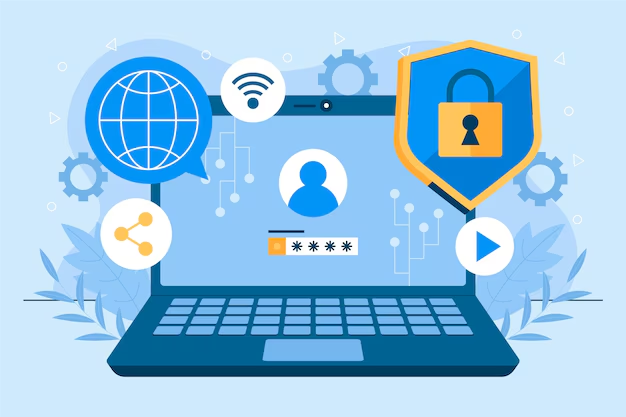The shift to remote work has redefined how businesses operate, with technology playing a pivotal role in keeping teams connected, productive, and efficient. Whether you’re managing a team or working solo, the right tech tools can make remote work seamless. Here’s a guide to the best innovations and tools designed for remote professionals.


1. Communication and Collaboration Tools
Effective communication is the backbone of remote work. Modern tools ensure that teams stay connected, even across different time zones.
Key Tools:
- Slack: A messaging platform for real-time communication, file sharing, and integration with other apps.
- Microsoft Teams: Combines chat, video conferencing, and collaborative document editing.
- Zoom: Renowned for its reliable video conferencing and breakout room features.
Innovations:
- AI Meeting Assistants: Tools like Otter.ai and Fathom provide real-time transcription and meeting summaries, ensuring no detail is missed.
- Virtual Office Platforms: Platforms like Gather.Town create virtual spaces where teams can “meet” for collaborative tasks in a gamified environment.


2. Project Management and Workflow Optimization
Staying organized is crucial for remote teams. Project management tools help assign tasks, track progress, and ensure deadlines are met.
Key Tools:
- Asana: Enables task assignment, project tracking, and team updates in one interface.
- Trello: Uses visual boards and cards for a streamlined workflow.
- Monday.com: Customizable workflows for managing projects and tracking productivity.
Innovations:
- AI Task Management: Tools like Motion use AI to prioritize and schedule tasks based on urgency and deadlines.
- Kanban Enhancements: Advanced Kanban boards with automation, like those in ClickUp, streamline repetitive tasks.

3. Cloud Storage and File Sharing
Efficient file storage and sharing are essential for remote work. Cloud-based platforms ensure your documents are accessible anytime, anywhere.
Key Tools:
- Google Drive: Collaborative document editing with seamless integration across devices.
- Dropbox: Secure file storage with advanced sharing permissions.
- OneDrive: Part of Microsoft 365, ideal for teams already using Microsoft products.
Innovations:
- Version Control AI: Features like those in Box ensure no file version is ever lost, with suggestions for optimal file management.
- Smart Sync: Dropbox’s Smart Sync lets you access files without downloading them to your local device, saving storage space.

4. Time Management and Productivity
Remote work can blur the line between work and personal life, making time management tools indispensable.
Key Tools:
- Toggl Track: A simple tool for tracking work hours and identifying time sinks.
- Clockify: Allows teams to monitor billable hours and project timelines.
- RescueTime: Tracks how you spend your time online and offers productivity insights.
Innovations:
- Focus Mode: Apps like Serene help block distractions and create focused work sessions.
- AI-Powered Recommendations: Tools like Timely suggest the most efficient ways to structure your workday based on past performance.

5. Remote Work Hardware
Hardware matters as much as software when working remotely. The right tools can significantly enhance your productivity and comfort.
Essential Devices:
- Noise-Canceling Headphones: Bose 700 or Sony WH-1000XM5 for crystal-clear audio during calls.
- Ergonomic Chairs and Desks: Adjustable standing desks and ergonomic chairs reduce strain during long hours.
- Portable Monitors: Devices like the ASUS ZenScreen offer extra screen space, boosting multitasking efficiency.
Innovations:
- Smart Keyboards and Mice: Devices like Logitech’s MX series allow for multi-device control and customizable shortcuts.
- Video Call Lighting: Tools like the Lume Cube ensure professional lighting for virtual meetings.


6. Security and Privacy Tools
Working remotely often involves accessing sensitive information over public or home networks, making cybersecurity essential.
Key Tools:
- VPN Services: NordVPN and ExpressVPN secure internet connections and protect data.
- Password Managers: LastPass and Dashlane offer encrypted storage for passwords.
- Antivirus Software: Tools like McAfee and Norton protect against malware and phishing attacks.
Innovations:
- Biometric Authentication: Fingerprint and facial recognition for secure access to devices.
- AI Threat Detection: Tools like Darktrace monitor network activity to identify and respond to potential threats in real time.
7. Virtual Team Building
Remote work doesn’t mean sacrificing team culture. Virtual team-building tools help foster collaboration and camaraderie.
Key Tools:
- Donut: Facilitates virtual coffee chats to help team members connect.
- QuizBreaker: Encourages fun and interactive quizzes for team bonding.
- Kahoot!: Gamified quizzes and activities for virtual team-building sessions.
Innovations:
- Immersive Experiences: Platforms like Virbela offer virtual worlds for team events, training, and conferences.
- AI Moderation: Tools that facilitate inclusive and engaging team discussions by monitoring and adjusting meeting dynamics.
Conclusion
Remote work is no longer just a trend—it’s a new way of life. With the right mix of tools and technology, remote professionals can achieve productivity, collaboration, and work-life balance. Whether you’re a seasoned remote worker or just starting, investing in these tools will help you stay ahead and thrive in this digital workspace.
Embrace the tech innovations that make remote work not only possible but highly effective, and enjoy the flexibility and freedom that comes with this evolving work model.










